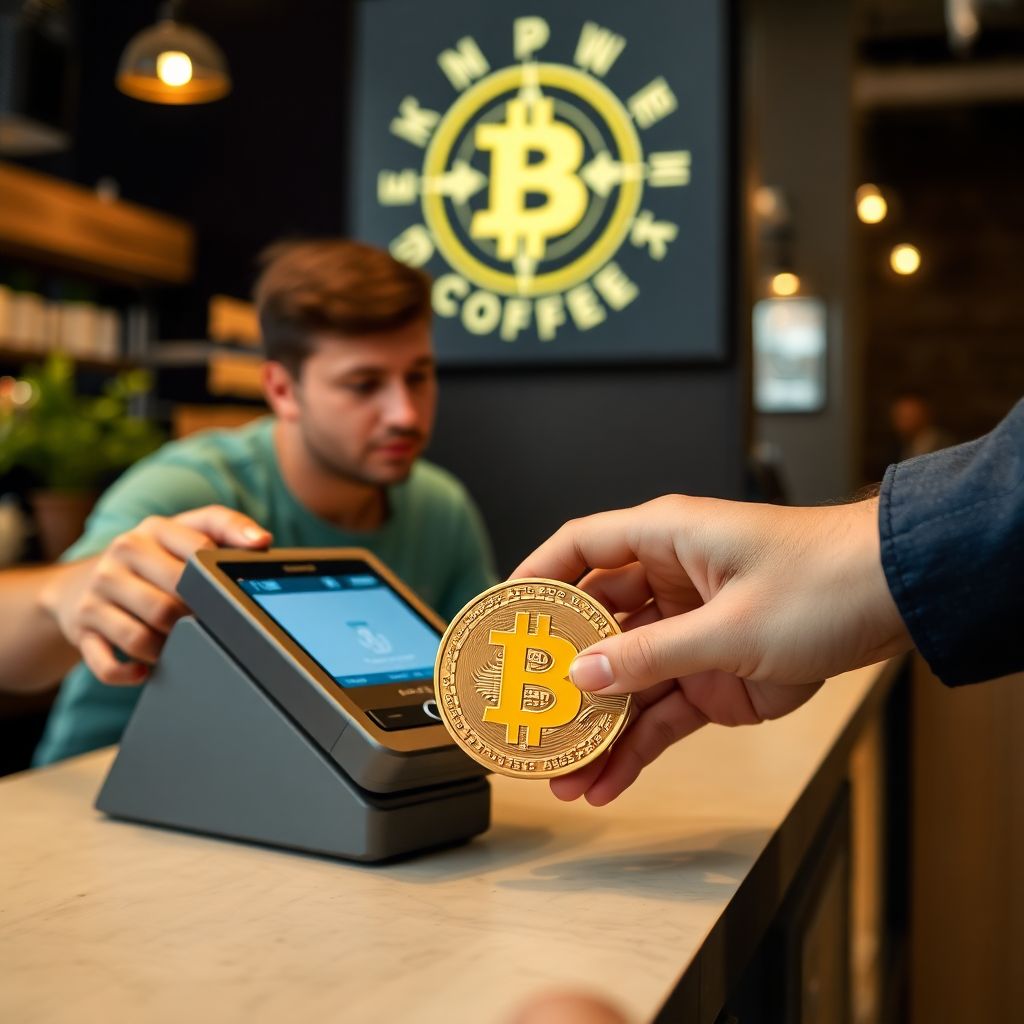Square has officially processed its first Bitcoin transaction at a U.S. coffee chain, marking a significant step toward mainstream adoption of cryptocurrency payments. The landmark event took place at Compass Coffee, a Washington, D.C.-based company with 27 locations, during the recent DC Fintech Week. Customers at the store were able to purchase their coffee using Bitcoin via the Lightning Network, using the same Square point-of-sale (POS) terminal that millions of small businesses already utilize.
This integration wasn’t just a one-off test. Square successfully ran 10 wallet transactions across a range of different Bitcoin wallets—all of which were completed instantly and without errors. The smooth performance demonstrated the reliability of both the Lightning Network and Square’s payment architecture, showcasing the potential of Bitcoin as a viable everyday payment option.
The Lightning Network, a layer-2 scaling solution built on top of Bitcoin, is designed to enable faster and cheaper transactions. By routing payments through a network of user-generated channels, Lightning allows Bitcoin to be used for daily microtransactions like buying a cup of coffee—something that would be too slow and expensive on the Bitcoin base layer.
The deployment at Compass Coffee is being viewed as a pilot for a larger rollout, with Square hinting at plans to extend Bitcoin payment capabilities across many more merchants globally. This move could position Square at the forefront of cryptocurrency adoption in retail environments, especially as other payment processors continue to remain cautious about integrating digital assets.
Jack Dorsey, co-founder and former CEO of both Twitter and Square (now Block, Inc.), has long been an advocate for Bitcoin. His influence continues to shape the trajectory of Square’s crypto initiatives. The successful test in Washington, D.C., aligns with Dorsey’s vision of Bitcoin becoming the native currency of the internet and a tool for financial inclusion.
The integration also highlights the importance of open standards in crypto development. The fact that a variety of wallets could interact seamlessly with the Square terminal emphasizes the value of interoperability and the decentralized nature of Bitcoin. No proprietary apps or custom integrations were required—users simply connected their wallets and paid.
This development could have major implications for merchants and consumers alike. From a business perspective, accepting Bitcoin could reduce transaction fees compared to traditional card payments, especially for small-ticket items. For customers, it offers another avenue for spending digital assets in the real world, further bridging the gap between crypto and traditional finance.
While some retailers have experimented with crypto payments in the past, many systems were clunky or required third-party services that added friction. Square’s native integration of Bitcoin through its existing POS infrastructure could change that narrative, making crypto payments as simple as tapping a card.
Another notable aspect is how this advancement might affect Square’s competitors. Companies like PayPal and Stripe have also dipped into crypto, but Square’s execution appears to be more deeply integrated with its core hardware and software. If the rollout proves successful, other players in the payments space may be compelled to accelerate their own crypto adoption strategies.
From a regulatory standpoint, the use of Bitcoin for small everyday purchases could also influence how governments view and legislate cryptocurrency. As adoption increases, authorities may take a more nuanced approach to crypto-related policies, especially if consumers begin to treat Bitcoin less as a speculative asset and more as an actual currency.
Looking ahead, the global rollout of Bitcoin-enabled Square terminals could revolutionize how digital assets are used in commerce. Retailers in emerging markets, where access to traditional banking infrastructure is limited, could especially benefit from permissionless, borderless payment systems like Bitcoin and Lightning.
In addition, this shift could prompt further innovation in customer loyalty programs, pricing models, and even tipping systems, all of which can now be built on-chain or integrated with crypto wallets. For example, merchants may offer Lightning-based discounts or NFTs as purchase incentives, further blending Web3 technologies with traditional sales.
Finally, this event serves as a powerful signal to both the crypto community and the broader financial industry: Bitcoin is no longer just a speculative investment. It is evolving into a functional, efficient means of payment that is ready for real-world adoption. Square’s pioneering move may well be remembered as a tipping point in the integration of digital currencies into everyday life.

